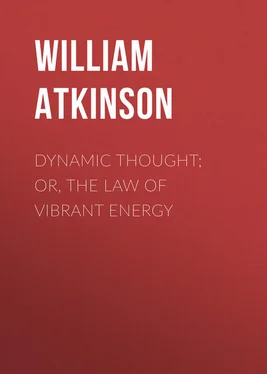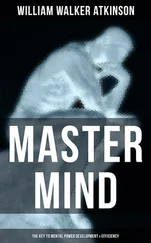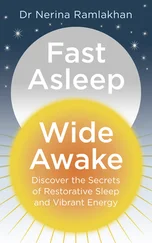William Atkinson - Dynamic Thought; Or, The Law of Vibrant Energy
Здесь есть возможность читать онлайн «William Atkinson - Dynamic Thought; Or, The Law of Vibrant Energy» — ознакомительный отрывок электронной книги совершенно бесплатно, а после прочтения отрывка купить полную версию. В некоторых случаях можно слушать аудио, скачать через торрент в формате fb2 и присутствует краткое содержание. Жанр: foreign_antique, foreign_prose, на английском языке. Описание произведения, (предисловие) а так же отзывы посетителей доступны на портале библиотеки ЛибКат.
- Название:Dynamic Thought; Or, The Law of Vibrant Energy
- Автор:
- Жанр:
- Год:неизвестен
- ISBN:нет данных
- Рейтинг книги:4 / 5. Голосов: 1
-
Избранное:Добавить в избранное
- Отзывы:
-
Ваша оценка:
- 80
- 1
- 2
- 3
- 4
- 5
Dynamic Thought; Or, The Law of Vibrant Energy: краткое содержание, описание и аннотация
Предлагаем к чтению аннотацию, описание, краткое содержание или предисловие (зависит от того, что написал сам автор книги «Dynamic Thought; Or, The Law of Vibrant Energy»). Если вы не нашли необходимую информацию о книге — напишите в комментариях, мы постараемся отыскать её.
Dynamic Thought; Or, The Law of Vibrant Energy — читать онлайн ознакомительный отрывок
Ниже представлен текст книги, разбитый по страницам. Система сохранения места последней прочитанной страницы, позволяет с удобством читать онлайн бесплатно книгу «Dynamic Thought; Or, The Law of Vibrant Energy», без необходимости каждый раз заново искать на чём Вы остановились. Поставьте закладку, и сможете в любой момент перейти на страницу, на которой закончили чтение.
Интервал:
Закладка:
William Walker Atkinson
Dynamic Thought; Or, The Law of Vibrant Energy
A FOREWORD
This is a queer book. It is a marriage of the Ancient Occult Teachings to the latest and most advanced conceptions of Modern Science – an odd union, for the parties thereto are of entirely different temperaments. The marriage might be expected to result disastrously, were it not for the fact that a connecting link has been found that gives them a bond of common interest. No two people may truly love each other, unless they also love something in common – the more they love in common, the greater will be their love for each other. And, let us trust that this will prove true in this marriage of Occultism and Science, celebrated in this book.
The Occultists usually get at the "facts," first, but they manage to evolve such outrageous theories to explain the facts, that the world will have none of their wares, and turns to Science for something "reasonable." Science, proceeding along different lines, at first denies these "facts" of the Occultists, not finding them accounted for by any of her existing theories; but, later on, when the "facts" have been finally thrust under her eyes, after repeated attempts and failures, she says, "Oh, yes, of course!" and proceeds to evolve a new theory, welding it with other scientific hypotheses, and after attaching a new label thereto, she proudly exhibits the thing as "the latest discovery of Modern Science" – and smiles indulgently, or indignantly, when the theory of the old Occultists is mentioned, saying, "Quite a different thing, we assure you!" And yet, in all justice, be it said, Science usually proceeds to find much better "proofs" to fit the "facts" of Occultism, than did the Occultists themselves. The Occultist "sees things," but is a poor hand at "proofs" – while the Scientist is great on "proofs," but so often, and so long, fails to see many things patent to the Occultist who is able to "look within" himself, but who is then unable to positively and scientifically "prove" the facts. This is easily explained – the Occultist's information comes from "within," while the Scientist's comes from without – and "proofs" belong to the "without" side of Mentation. And this is why the Occultists so often make such a bungle regarding "proofs" and the Scientist fails to see "facts" that are staring the Occultist in the face.
The whole history of Occultism and Science proves the above. Take the phenomenon called "Mesmerism" for instance – it was an old story with the Occultists, who had been for years aware of it, theoretically and practically. Mesmer brought it into general prominence, and Science laughed at it and at Mesmer's "fluid" theory, and called him a charlatan and imposter. Years afterwards, Braid, an English surgeon, discovered that some of the facts of "Mesmerism" were true, and he announced his discovery in a scientific manner, and lo! his views were accepted, and the thing was called "Hypnotism," poor old Mesmer being forgotten, because of his theory. Then, after a number of years, certain other aspects of the phenomenon were discovered, and scientifically relabelled "Suggestion," and the re-naming was supposed to "explain" the entire subject, the learned ones now saying, "Pooh, 'tis nothing but 'Suggestion,'" as if that explained the matter. But so far, they have only accepted certain phases of this form of Dynamic Thought – for that is what it is, and there are many other phases of which they do not dream.
And the same is true of the Occult Teaching that there is "Life in Everything – the Universe is Alive." For years, this idea was hooted at, and we had learned scientific discourses upon "dead Matter," "inert substance," etc. But, only within the past decade – yes, within the last five years, has Science discovered that there was Life in Everything, and that even in the Atom of mineral and chemical substance, there was to be found evidence of Mind. And Science is beginning to plume itself on its "recent discovery," and to account for it by a new theory, which is "quite a different thing, we assure you," from the old Occult Theory.
And the same will prove true in the case of the Occult Teaching of an Universal Mind, or Cosmic Mind. Science and Philosophy have long laughed at this, but even now their foremost investigators have come to the borders of a new country, and are gasping in amazement at what they see beyond its borders – they are now talking about "Life and Mind in the Ether" – and before long they will discard their paradoxical, absurd, hypothetical Ether, and say, "We are bathed in an Ocean of Mind" – only they will insist that this "Ocean of Mind" is, somehow, a "secretion of Matter" – something oozing out from the pores of Matter, perhaps.
But Science is doing valuable work in the direction of investigation and experiment, and in this way is proving the principal occult teachings in a way impossible to the Occultists themselves.
So, you see that both Occultism and Science have their own work to do – and neither can do the work of the other. Just now Science is coquetting with the question of "Thought Transmission," etc., at which she has for so long sneered and laughed. By and by she will accept the facts, and then proceed to prove them by a series of careful and conclusive experiments, and will then announce the result, solemnly, as "a triumph of Science."
And so, in this book you will find a marriage of the old Occult Teachings and Modern Scientific Researches and Investigation. And the two are bound together with that bond forged by the writer of the book – heated in the oven of his mind, and hammered into shape with his "untrained" thought – a crude, clumsy thing, but it serves its purpose – a thing called " The Theory of Dynamic Thought ."
And so, this is what this Theory is – a " tie that binds ." How you will like it depends upon yourself. For himself, the writer does not hesitate to say that he is pleased with his handiwork, rude, and clumsy though it may be. He believes that he has made a thing that will stand wear and tear, and that though it be not beautifully finished, it "will serve," and "be useful." And that is the main thing, after all. And, then, perhaps, some may see beauty in the very crudeness of the thing – may see that it bears the loving mark of the hammer that beat it into shape – may recognize that over it has passed the caress of the hand that made it – and in that seeing there may come the recognition of a beauty that is beyond "prettiness."
"A fire-mist and a planet,
A crystal and a cell,
A jelly-fish and a saurian,
And caves where the cave-men dwell;
Then a sense of law and beauty,
And a face turned from the clod, —
Some call it Evolution,
And others call it God."
"Like tides on a crescent sea-beach,
When the moon is new and thin,
Into our hearts high yearnings
Come welling and surging in, —
Come from the mystic ocean
Whose rim no foot has trod, —
Some of us call it Longing,
And others call it God."
CHAPTER I
"IN THE BEGINNING"
THIS book will deal with Life. It holds that Life is Universal – that it is inherent in, and manifests (in different degrees) in every part, particle, phase, aspect, condition, place, or relationship, in the World of Things that we call the Universe.
It holds that Life manifests in two aspects or forms, which are generally found by us in connection and co-operation with each other, but which are both, probably, an expression of some One Thing higher than either. These two aspects or forms, which together go to make up or produce that which we know as "Life," are known as (1) Substance or Matter; and (2) Mind. In this book the term "Substance" is used in preference to "Matter," owing to the fact that the term "Matter" has become closely identified with certain ideas of the Materialistic school of thought, and has generally been regarded by the public in the light of "dead matter," whereas this book holds that all Substance is Alive. The term "Mind" is used in the sense of "Mind,
Читать дальшеИнтервал:
Закладка:
Похожие книги на «Dynamic Thought; Or, The Law of Vibrant Energy»
Представляем Вашему вниманию похожие книги на «Dynamic Thought; Or, The Law of Vibrant Energy» списком для выбора. Мы отобрали схожую по названию и смыслу литературу в надежде предоставить читателям больше вариантов отыскать новые, интересные, ещё непрочитанные произведения.
Обсуждение, отзывы о книге «Dynamic Thought; Or, The Law of Vibrant Energy» и просто собственные мнения читателей. Оставьте ваши комментарии, напишите, что Вы думаете о произведении, его смысле или главных героях. Укажите что конкретно понравилось, а что нет, и почему Вы так считаете.












